Table of Contents
St. John’s wort (hypericum perforatum) is a potent antidepressant. This sprawling, leafy herb grows throughout much of the world’s temperate regions.
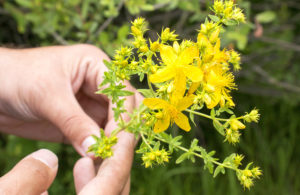
St. John’s wort has been used to treat a variety of internal and external illnesses dating back to the ancient Greeks. St. John’s wort supplements are derived from the flowering tops of this perennial shrub.
The name St. John’s wort comes from its traditional flowering and harvesting on St. John’s Day which falls on June 24.
St. John’s wort has remained a popular treatment for anxiety, depression, cuts, and burns. Recent research shows its effectiveness in treating cancer, inflammation, bacterial and viral diseases.
As a nootropic, and for cognitive health, St. John’s wort is as effective at relieving mild-to-moderate depression as the most commonly prescribed SSRI and TCA (tricyclic) antidepressants.
St. John’s wort helps:
- Neurotransmitters. St. John’s wort inhibits the uptake of serotonin, dopamine, GABA, glutamate and norepinephrine. Inhibiting the neuronal uptake of these neurotransmitters can have a profound effect on depression and mood.
- Neuroprotection. St. John’s wort extract decreases oxidative stress, prevents neurotoxicity, and brain inflammation. It helps maintain mitochondria electric potential in brain cells. And protects against cell death caused by amyloid B peptides that form plaques in the brains of those suffering from Alzheimer’s.
- Anxiety and stress. St. John’s wort extract helps alleviate the symptoms of anxiety and stress by influencing neurotransmitters. And St. John’s wort moderates the genes controlling the function of your HPA-axis which is directly related to symptoms of anxiety and stress.
What is St. John’s wort?
St. John’s wort (hypericum perforatum) is regarded as a wildflower, herb and weed. As a nootropic, St. John’s wort is considered a powerful antidepressant.
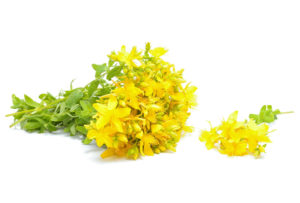
St. John’s wort is native to Europe. But can be found growing wild throughout Asia, Africa, North and South America and Australia.
Greek physicians Galen and Dioscorides prescribed St. John’s wort as a diuretic, for healing wounds and treating menstrual disorders. In the Middle Ages, it was used as a talisman for warding off evil spirits.
St. John’s wort is best harvested on St. John’s Day (June 24) when the herb is in peak bloom. Legend has it that if you placed a sprig of the herb under your pillow on St. John’s Eve, St. John himself may appear in a dream, and bless you for another year. (Not sure if this applies when you put a bottle of St. John’s wort extract under your pillow, but worth a try).
St. John’s wort first crossed the radar of modern herbalists and naturopaths in 1997. A study published in the British Medical Journal entitled, “St John’s wort for depression–an overview and meta-analysis of randomized clinical trials” pushed it to superstar herbal antidepressant status.
This meta-analysis of 23 previously published studies on St. John’s wort was drawn from foreign medical journals. The analysis showed that overall, St. John’s wort was significantly superior to placebo. And was as effective as pharmaceutical antidepressants.[i]
The British Medical Journal published another study in 2005 showing that St. John’s wort was equally effective in treating depression and better tolerated than the widely prescribed antidepressant paroxetine (Paxil).[ii]
The two major active constituents of St. John’s wort are hypericin (a naphthodianthrone) and hyperforin (a phloroglucinol). The plant contains a total of seven groups of medicinally active compounds.[iii]
Researchers have extensively documented St. John’s wort as having antidepressant, antiviral, antioxidant, anti-cancer, and antibacterial effects.[iv]
The most recent clinical studies show that hyperforin is the compound found in St. John’s wort that has the most antidepressant action.
If you’ve had limited success using St. John’s wort for depression and anxiety, your choice of supplement may be the problem. Go to the section “Recommended Doasge” in this article to learn what extracts work best.
How does St. John’s wort work in your brain?
St. John’s wort boosts brain health and function in several ways. But two in particular stand out.
- St. John’s wort reduces depression. Hyperforin is the major antidepressive compound found in St. John’s wort. Hyperforin inhibits the uptake of serotonin, dopamine and norepinephrine in the brain.[v] By making more of each of these neurotransmitters available in your brain, mood is elevated and depression symptoms decline.
Clinical trials also demonstrate that the level of antidepressant effect of St. John’s wort extract is entirely dependent on the concentration of hyperforin found in the extract.[vi]
A study in Berlin compared the efficacy of using St. John’s wort extract (WS 5570) to paroxetine (Paxil) in treating moderate to severe depression.
In this multicenter, randomized, double-blind study, 130 patients who received 900 mg or 1800 mg per day of St. John’s wort, or 40 mg of paroxetine were included.
The study showed that St. John’s wort and paroxetine were equally effective in preventing relapse in continuation of treatment after recovery from moderate to severe depression. And that St. John’s wort was an important alternative treatment option for long-term prevention of depression.[vii]
- St. John’s wort reduces stress. St. John’s wort is licensed in Germany to treat anxiety, depression and sleep disorders. But scientists and researchers are still working on what in this plant provides the anxiolytic effects.
The anti-anxiety effects of St. John’s wort have been attributed to the binding affinity of at least 10 different compounds found in the herb. Including naphthodianthrones like hypericin, flavonoids, xanthones, and bioflavonoids for adenosine triphosphate (ATP). GABAA, GABAB and glutamine receptors, as well as the inhibition of Monoamine Oxidase-A and -B activity. And synaptic uptake of serotonin, dopamine and norepinephrine.[viii]
All we know for sure at this point is that St. John’s wort works to help alleviate some forms of anxiety. One German study ran a multicenter, randomized, placebo controlled, 6-week clinical trial comparing the efficacy of St. John’s wort extract LI 160 (600 mg/day), and placebo in 151 out-patients suffering from anxiety.
The results from the trial shows that St. John’s wort extract (LI 160) has superior effectiveness in controlling anxiety symptoms. And tolerability of the extract was excellent.[ix]
How things go bad
Depression can be experienced at any age. Imbalances in neurotransmitters including serotonin, dopamine, and norepinephrine can affect everything from cognition to mood.
↓ Memory, recall, reaction time and mood diminish
↓ Neuroreceptors decline
↓ Neurotransmitters levels decline
↑ Anxiety, panic attacks, stress and insomnia rise
↓ Neuroplasticity declines degrading long-term potentiation
Under conditions of depression and chronic stress your brain loses the capacity to transmit signals between neurons efficiently. Memory, cognition, and decision-making all suffer as a result.
St. John’s wort benefits
St. John’s wort inhibits synaptic uptake in your brain of serotonin, dopamine, and norepinephrine with approximately equal affinity. In other words, it acts like a SSRI and DNRI.
Research shows that St. John’s wort also affects adenosine triphosphate (ATP), GABA and glutamate receptors. And in the lab, scientists discovered it downregulates beta-adrenergic receptors and upregulates serotonin receptors.[x]
Adrenergic receptors are a class of G protein receptors that are targets of the catecholamines like norepinephrine and epinephrine (adrenaline). This upregulation and downregulation of neurotransmitter concentrations are in areas of the brain implicated in depression.
And finally, neuroendocrine studies show that St. John’s wort is involved in the regulation of genes that control HPA-axis function. Also contributing to the antidepressant and anti-anxiety action of this herb.[xi]
Much of the therapeutic benefit is attributable to St. John’s wort active phytochemical ingredients hypericin, hyperforin and several flavonoids.[xii]
This novel mechanism of action is unlike any other single pharmaceutical antidepressant or nootropic. And underlies St. John’s wort’s profound effect on depression.
St. John’s wort also has strong antibacterial[xiii] and antiviral[xiv] benefits. St. John’s wort inhibits tumor cell growth.[xv]
Research shows that St. John’s wort extracts decrease oxidative stress and prevent neurotoxicity, and inflammation. And may be an effective treatment for oxidative stress-related neurodegenerative disorders like Parkinson’s and Alzheimer’s.[xvi]
St. John’s wort shows promise as an anti-inflammatory.[xvii] Thousands of years of clinical use shows St. John’s wort works as a wound-healing agent.
And St. John’s wort even helps reduce the effects of opioid dependence by reducing withdrawal symptoms.[xviii] Handy if you’re detoxing off of opiates. It may help reduce withdrawal symptoms.
How does St. John’s wort feel?
If you have had problems with using SSRI prescription antidepressants, St. John’s wort extract may be a good option for you.
St. John’s wort does not produce the same side effects as pharmaceutical antidepressants. Sex drive is not affected. And no withdrawal symptoms when you stop taking St. John’s wort.
Users of St. John’s wort extract say it often works sooner than expected, and gets better over time.
St. John’s wort extract helps provide better focus, and fewer Obsessive-Compulsive Disorder (OCD) symptoms. Users report an end to procrastination, less irritation, and better mood.
St. John’s wort extract takes the edge off situations that would normally stress you. Feelings of anxiety are less or non-existent.
Women going through menopause report feeling more emotionally stable when using St. John’s wort extract. Mood swings are no longer an issue.
If you deal with PTSD you may find that St. John’s wort extract will put a stop to the rage. And long-term depression could be a distant memory.
If you are sure your depression is caused by a serotonin imbalance, you should feel the mood-lifting effects of St. John’s wort.
But neuroscience is a complicated subject. And everyone’s body and wiring are different. St. John’s wort does not work for all types of depression or anxiety.
If your depression is caused by a hormone imbalance, a depleted microbiome, an issue with dopamine levels or other neuroreceptor issue, you may not experience the benefit of St. John’s wort.
And please, please do not combine St. John’s wort with prescription antidepressants! Serotonin Syndrome is real and could kill you. Literally.
St. John’s wort clinical research
The Politics of Treatment for Depression
Most clinical studies using St. John’s wort for depression have been conducted in Europe. And were targeted in cases of mild to moderate depression.
And then came a study done at Vanderbilt University in the US in 2001 which made headline news and created a ton of controversy. This study discredited the herb’s use in treating patients with major depression.
I’m including this study to draw your attention to why we cannot always rely on “clinical studies” to study a nootropic’s efficacy in brain optimization. And why the nootropics community often resorts to personal experience, and the reviews of other neurohackers.
This double-blind, placebo-controlled trial worked with 200 adult outpatients (mean age 42.4 years) who were diagnosed with major depression. Patients were randomly assigned to receive 900 mg per day of St. John’s wort extract or a placebo for 4 weeks. And if they did not respond, the dose was raised to 1,200 mg per day (or a placebo) for another 8 weeks.
The researchers concluded that there was no significant change in patient depression scores. And that St. John’s wort was no better than placebo for treating major depression.
Their conclusion was, “St. John’s wort was not effective for treatment of major depression”.[xix]
I bring this study up for one reason: the study was funded by Pfizer, the pharmaceutical manufacture of Zoloft. The leading synthetic antidepressant medication.
In 2015, the FDA in the US pushed Pfizer Inc. to modify the safety warning for Zoloft®. Linking Zoloft to causing heart defects in newborns. This in response to hundreds of lawsuits by women who say they weren’t adequately warned that Zoloft could cause defects in their newborns.
Zoloft sales for Pfizer made the company $3.3 billion in 2005.[xx]
It seems to me that having a major pharmaceutical company funding the study of an herb that is in direct competition with one of their main profit-centers is a direct conflict of interest. And there was no way Pfizer was going to have a clinical trial that shows St. John’s wort was as good as, or better than Zoloft.
It’s also interesting that sales of St. John’s wort annual USA sales reached a peak of $315 million in 1998. But had declined to about $60 million by 2006.[xxi] Bad press strongly affected the sales of this natural antidepressant. And yet the sales of pharmaceutical antidepressants continues to rise.
Note that St. John’s wort sales in the USA in 2024 were reported to be nearly $33 million, which is a 24% increase from the updated 2023 figures.
St. John’s wort as a Treatment for Mild-to-Moderate Depression
A study at St. John’s Episcopal Hospital in New York compared St. John’s wort to the SSRI sertraline (Zoloft®) in the treatment of depression.
In this double-blind, randomized study, 30 outpatients (mean age 45.5 years) with mild to moderate depression received 600 mg per day of standardized St. John’s wort extract or 50 mg per day of sertraline for 1 week.
This was followed by 900 mg per day of St. John’s wort extract or 75 mg per day of sertraline for another 6 weeks.
The severity of depression symptoms significantly reduced in both treatment groups. Clinical response was noted in 47% of patients receiving St. John’s wort. And 40% in patients receiving sertraline.
The researchers concluded that St. John’s wort extract was at least as effective as sertraline in the treatment of mild to moderate depression.[xxii]
St. John’s wort for Major Depression
I include this study which was conducted in 2008 using St. John’s wort as treatment for major depression as a response to the questionable study sponsored by Pfizer in 2001.
This study was done in Munich, Germany, and investigated whether extracts of St. John’s wort were more effective than placebo in treating major depression. And with fewer side effects than standard antidepressant drugs.
This study was a review of 29 clinical trials including a total of 5,489 patients. It included 18 comparisons with placebo and 17 comparisons with synthetic “standard antidepressants”. The standard antidepressants included tricyclics and SSRI antidepressants.
The author’s conclusions reported that the available evidence suggests that St. John’s wort extracts were superior to placebo in patients with major depression. St. John’s wort extracts were similarly effective as standard antidepressants. And St. John’s wort extracts had fewer side effects compared to standard antidepressants.[xxiii]
St. John’s wort helps OCD
A study done at the Dean Foundation for Health Research and Education analyzed 12 patients who had been diagnosed with OCD. Patients received 450 mg of St. John’s wort twice daily for 12 weeks.
The study included weekly evaluations using three different Obsessive-Compulsive scales. And a monthly evaluation with the Hamilton Rating Scale for Depression.
Changes in OCD behavior occurred within one week of supplementing with St. John’s wort. And changes continued to improve over the course of the 12-week trial.
5 of the 12 patients were rated “much” or “very much” improved, 6 patients were rated “minimally” improved, and 1 person had no change in symptoms.
The researchers concluded that St. John’s wort could be an effective treatment for Obsessive-Compulsive Disorder (OCD).[xxiv]
St. John’s wort recommended dosage
St. John’s wort is available from local health food and vitamin stores and online. St. John’s wort comes in capsule, tablet and powder form. It’s also available as tinctures, teas and oil-based lotions.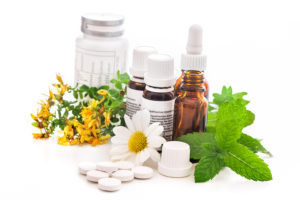
Most St. John’s wort supplements are standardized to contain 3% hypericin. But the most recent clinical studies show that hyperforin is the active ingredient in St. John’s wort that has the most antidepressant action.
Researchers say that the benefits of St. John’s wort are only applicable to standardized extracts such as LI 160, WS 5570/2, and ZE 117.[xxv]
Check the labels and look for:
- Perika® which is WS 5570 extract
- Kira® which is LI 160 extract
- New Chapter SC27 who produce their own extract
There are reports and some clinical data which suggest that the photosensitivity caused by hypericin can cause cataracts and blindness in animals. All the more reason to play it safe, and go with a high quality St. John’s wort extract containing hyperforin.[xxvi]
Recommended doses for St. John’s wort extract:
- St. John’s wort for anxiety: 900 mg twice daily
- St. John’s wort for mild to moderate depression: 300 mg 3-times daily
- St. John’s wort for severe depression: 900 – 1800 mg daily
- St. John’s wort for OCD: 450 – 1800 mg daily for 12 weeks
- St. John’s wort for PMS: 300 – 900 mg daily for 2 menstrual cycles
- St. John’s wort for irritable bowel syndrome: 450 mg twice daily for 12 weeks
- St. John’s wort for nerve pain: three 900 mcg hypericin tablets for 2 treatment periods of 5 weeks each
St. John’s wort side effects
Side effects with St. John’s wort are generally mild and can include stomach upset, hives, skin rashes, fatigue, restlessness, headache, dry mouth, dizziness and confusion.
Research shows the Hyperforin found in St. John’s wort is a potent noncompetitive inhibitor of CYP2D6 activity and competitive inhibitor of CYP2C9 and CYP3A4 activity. And Hypericin also demonstrated potent inhibition of several CYP activities.
A researcher working in Pfizer’s Central Research Division said this, “These in vitro data indicate that St. John’s wort preparations contain constituents that can potently inhibit the activities of major human drug-metabolizing enzymes and suggest that these preparations should be examined for potential pharmacokinetic drug interactions in vivo.”
As a neurohacker this means that St. John’s wort can either potentiate the effectiveness of some of the nootropics in your stack, or prescription drugs you are using. Or can prevent you from experiencing the benefits of a nootropic supplement or med.
St. John’s wort can interfere with getting pregnant, or make infertility worse. It can make ADHD symptoms worse. Particularly if you’re taking Ritalin.
St. John’s wort may increase the risk of psychosis in those with schizophrenia, and may contribute to dementia in those with Alzheimer’s.
St. John’s wort can interact with medications used during surgery. So if you’re anticipating surgery avoid using St. John’s wort.
Do not take St. John’s wort if you have bipolar disorder.
Some St. John’s wort extracts can make your skin and eyes overly sensitive to sunlight. You should avoid sunlamps, tanning booths and tanning beds while using a St. John’s wort product containing hypericin.
There is some clinical data showing that St. John’s wort products that contain hypericin may cause blindness in animals.[xxvii]
St. John’s wort and Serotonin Syndrome
Cytochrome P450 3A4 (CYP3A4) is a liver enzyme whose job is to oxidize small, foreign organic molecules and toxins so they can be removed from your body.
Some substances, including St. John’s wort and grapefruit juice, affect the enzyme CYP3A4. And can amplify or weaken the action of those drugs and nootropics.[xxviii]
St. John’s wort interacts with tricyclic, SSRI and MAOI antidepressants. Taking St. John’s wort with these medications increases their action, and could lead to serotonin syndrome which can be deadly.
Do not take St. John’s wort with antidepressants including:
- Tricyclic: Amitriptyline (Elavil), nortriptyline (Pamelor), imipramine (Tofranil)
- SSRI: Citalopram (Celexa), escitalopram (Lexapro), fluvoxamine (Luvox), paroxetine (Paxil), fluoxetine (Prozac), sertraline (Zoloft)
- MAOI’s: (Phenelzine (Nardil), tranylcypromine (Parnate)
St. John’s wort can reduce levels of antihistamines in your body. It can increase the risk of bleeding when combined with Plavix and birth control pills. Do not use St. John’s wort with Warfarin as it can reduce its effectiveness.
Drugs that suppress the immune system can lose their effectiveness with St. John’s wort. It should not be used with drugs that treat HIV and AIDS.
St. John’s wort can increase the sedative effect of barbiturates, benzodiazepines (Valium), and triptans that treat migraines.
St. John’s wort also interacts with antifungal drugs, statins, calcium channel blockers, and any other medication that is broken down by the liver. Which covers a lot of drugs and nootropics.
Serotonin Syndrome is not to be messed with. An overload of serotonin in your brain can make you very sick. And can ultimately kill you. I am not kidding here.
If you suspect anything could cause problems if it’s increased or decreased in your system, do not use St. John’s wort. If your goal is to treat depression and mood issues, you have many other safer options available to you.
Type of St. John’s wort to buy
St. John’s wort is available in tablet, capsule and powder form. Most are standardized to contain 0.3% hypericin. But the most recent clinical studies show that hyperforin is the active ingredient in St. John’s wort that has the most antidepressant action.
Researchers say that the benefits of St. John’s wort are only applicable to standardized extracts such as LI 160, WS 5570/2, and ZE 117.[xxix]
Check the labels and look for a product containing:
- Perika® which is WS 5570 extract
- Kira® which is LI 160 extract
- New Chapter SC27 who produce their own extract
St. John’s wort is also available in tinctures, teas and oil-based skin lotions.
Nootropics Expert Recommendation
St. John’s wort extract up to 900 – 1,800 mg per day
 I recommend using St. John’s wort extract as a nootropic supplement. But with the strongest warning I have issued for any nootropic mentioned on Nootropics Expert®.
I recommend using St. John’s wort extract as a nootropic supplement. But with the strongest warning I have issued for any nootropic mentioned on Nootropics Expert®.
Do not combine St. John’s wort with prescription antidepressants because the combination puts you in serious danger of Serotonin Syndrome. Which can potentially kill you.
St. John’s wort may also nullify or amplify the effects of other drugs including nootropics in your stack. This is caused by the suppression or induction of certain enzymes in your liver.
Check the “Side Effects” sectin of this article. And do your research before using St. John’s wort if you are taking any other medication or nootropic. Including the section on how St. John’s wort can either increase the effectiveness of some nootropics and prescription meds. Or prevent you from experiencing their benefits depending on the supplement or drug. Because of its effects on liver enzymes.
Your body does not make St. John’s wort on its own. So to experience its antidepressant effects, you must take it as a supplement.
St. John’s wort is especially helpful if you are suffering from depression, anxiety and stress. Studies show it may help stop and reverse the devastating effects of stress on your brain, and body.
St. John’s wort stacks well with SAM-e.
You can safely take up to 1,800 mg of St. John’s wort daily if needed. Half the dose first thing in the morning. And the other half early afternoon. St. John’s wort can cause insomnia. So avoid taking it too late in the day.

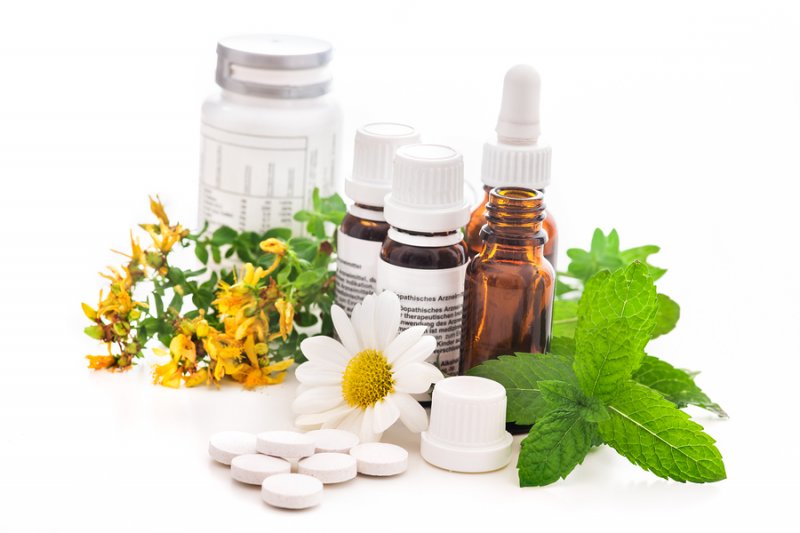


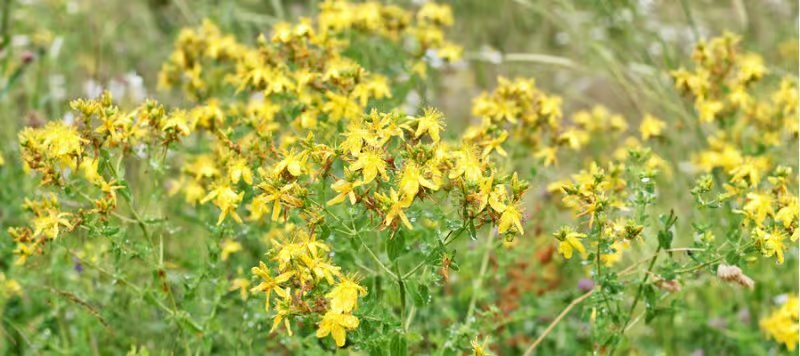





Join The Discussion - 285 comments
MALIK
July 20, 2021
Hello David! I am taking nootropic from mind lab pro & taking aniracetam. Is it safe to add St. John wort in my stack? My only concern is if it raises too much serotonin or dopamine because I am already taking notropic?
David Tomen
July 21, 2021
Malik, good question but it depends on how you react to St. John’s wort. Some can use SJW with Mind Lab Pro and Aniracetam and others cannot. The only way to find out is to try it. Start with a very small dose of St. John’s wort and see how you react. If no bad reaction then raise it slowly until you get to the recommended dose. Or less depending on your system.
An
July 14, 2021
Hi David,
Can you please confirm if St Johns Wort is and MAOI, and if so certain foods need to be avoided?
Thanks
An
David Tomen
July 21, 2021
An, scroll back up to the section called “St. John’s wort and Serotonin Syndrome” which tells you which meds you need to avoid while using St. John’s wort. Foods are not a problem. It’s prescription meds as well as a very few nootropic supplements you need to avoid while using it.
aminos
July 1, 2021
Is it true that the period of taking St. John’s wort to treat depression should not exceed months?
David Tomen
July 1, 2021
Aminos, clinical studies only show St. John’s wort safe for up to 12 weeks. That’s not to say it is not safe for long-term use. It means we do not know if there is a problem using it longer than 12 weeks.
I suggest that if you decide to use St. John’s wort long-term then ask your doctor to run your labs every few months. Especially for liver and kidney function just to make sure there are not any problems from using it long-term.
ALPHA
June 30, 2021
Can saffron and St. John’s Wort be combined at the same time
David Tomen
June 30, 2021
Alpha, not a good idea in my opinion because at least in part they have a similar mechanism of action. There is no need to use both. St. John’s wort is as potent as some prescription drugs. And you need to be careful with what you use it with.
Better to use one or the other but not both together.
martin
May 27, 2021
Hi, in your anxiety Video you say thar increasing Serotonin is maby not a good idea.
St John’s wort inhibits of the reuptake of serotonin . So its primarily only affects the Serotonin wich is already there or?
Here in Germany we have a Supplement with 360 mg St John’s Wort, 180 mg of valerian extract and 180 mg of passion flower. The Valuation look very nice in the Internet. I consider to try this. Do you think it could be good for anxiety?
Thanks
David Tomen
May 27, 2021
Martin, I would never say that increasing serotonin is not a good idea. What I may have said is that your anxiety is not caused by a deficiency in serotonin but some other neurotransmitter. And you need to find out which one it is.
The supplement that you mentioned may help you. On the other hand it may not work or could even make things worse. It depends on what is causing your anxiety. This article explains more: https://nootropicsexpert.com/best-nootropics-for-anxiety/
martin
May 27, 2021
Thank you, Sir
Robin
April 15, 2021
Is it safe or beneficial to take St John’s Wort with Tumeric, magnesium and Ashwagandha?
David Tomen
April 16, 2021
Robin, they are not contraindicated. So it depends on what benefit you are looking for by taking it.
Rio
April 2, 2021
Hi,
Is it safe to take with
Vinpocetine
Piracetam or Phenylpiracetam
Citicoline
Inderal?
David Tomen
April 3, 2021
Rio, I don’t know what “Inderal” is but the rest on your list should be safe.
Phil
January 7, 2022
Inderal is Propanolol
David Tomen
January 7, 2022
It is not included in this list of contraindications: https://www.drugs.com/drug-interactions/propranolol-index.html
Diane
March 16, 2021
Thank you so much for all this valuable information! Do you think it would be OK to try Rhodiola when I already take St John’s Wort? Or would this be a seratonin syndrome risk? SJW as it has been great for me since I came off antidepressants but have just discovered the world of nootropics, and am fine on Lions Mane and SJW, so was thinking of adding Rhodiola & Ashwanga? Any advice gratefully received, thanks for all you do.
David Tomen
March 16, 2021
Dianne, I have a newsletter on this exact subject coming out today. There should not be a problem combining St. John’s wort and Rhodiola Rosea for “most people”. But for some it maybe a problem.
The wild card here is St. John’s wort because it is as powerful as many prescription drugs. And Rhodiola Rosea acts like an MAOI. So this combo could be too much because of that. Ashwagandha should be safer to use than Rhodiola Rosea.
Diane
March 17, 2021
Wow synchronicity in action, I love it! Just signed up, thanks for the book, can’t wait to read. A world has just opened up! Am seeing I probably shouldn’t be taking ginkgo either with the SJW? I also take COQ-10, Potassium, Magnesium,zinc,Milk Thistle,Collagen,D3,K2,Turmeric,Lions Mane, all Ok with the SJW? Thanks again
David Tomen
March 17, 2021
Dianne, Ginkgo Biloba is not contraindicated with St. John’s wort.In fact, most natural supplements are not a problem with SJW. The problem is with prescription antidepressants and some recreational drugs.
Jeff
June 21, 2021
Hi David – great article on a great website 🙂
I’m just starting SJW for anxiety and depression. If it doesn’t help I was going to try SAM-e next.
However I see you say that in fact SWJ stacks well with SAM-e so I am wondering whether to combine them if I don’t see any results from the SJW alone.
Can you please explain a little bit more about why they stack well? Is it the case that the SAM-e will help boost the production of the required neurotransmitters (serotonin, dopamine, etc) and then the SJW acts to prevent their uptake hence allowing them to have more of an effect?
Thanks for such a great resource …
David Tomen
June 21, 2021
Jeff, I don’t think anyone has thought the science completely through but I think you are close to how it works. SAM-e (https://nootropicsexpert.com/sam-e/) helps produce and breakdown the neurotransmitters acetylcholine, dopamine, serotonin, norepinephrine and melatonin in your brain.